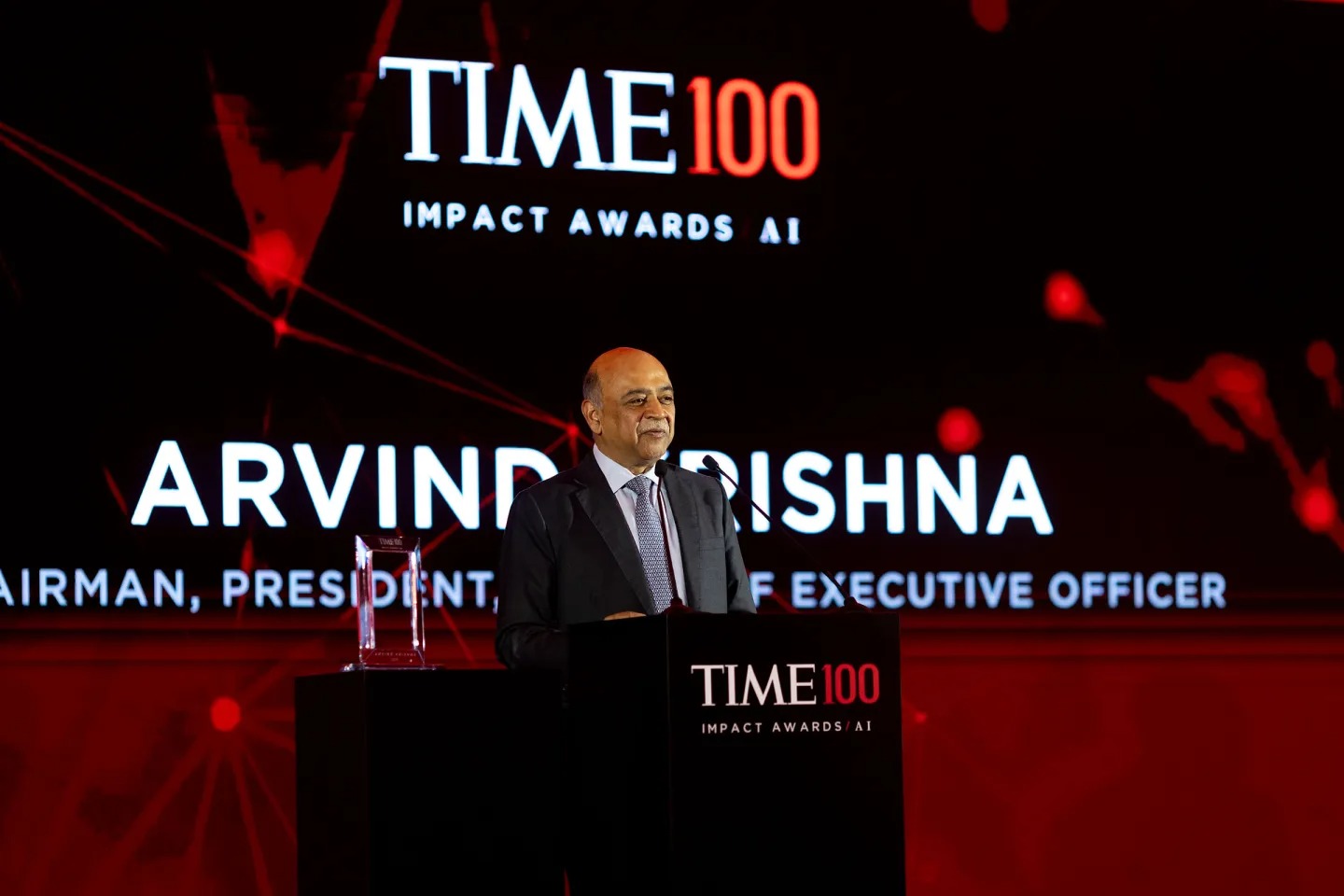
Arvind Krishna, chairman and CEO of IBM, took the stage at the TIME100 AI Impact Awards in Dubai. The event, which was organized by TIME in collaboration with the World Government Summit and the Museum of the Future, honored forerunners in the field of AI.
Accepting his own award, Arvind Krishna shone a light on one whose work provided the silent ground for modern computing to be built upon – Claude Shannon.
“He would come up with the ways that you can convey information, all of which has stood the test until today,” Arvind Krishna said, paying tribute to the mathematician and electrical engineer often referred to as the “father of the information age.”
Shannon is a big deal in the world of both AI research and engineering. His 1948 paper, A Mathematical Theory of Communication, changed the way information is handled and communicated. By coming up with the idea of bits—the foundation unit of details—Sharnan’s performance established a foundation totaling all the way up to today’s computing system to artificial intelligence.
But, as Arvind Krishna reminded all, Shannon’s brilliance was not limited to theory only.
“I think we can give him credit for building the first elements of artificial intelligence,” Arvind Krishna said.
Years before the advent of machine learning, Shannon had been considering the potential of intelligent systems. He famously created robotic mice that could find their way through mazes, an early attempt to understand what would eventually be recognized as reinforcement learning—the very same basic principle behind AI-driven decision-making models today.
Arvind Krishna noted that Shannon’s work was not just precursors but also funny, playful and very imaginative. “His simple insights have helped contribute to the most sophisticated communication systems of our time, including satellites,” he said.
While Arvind Krishna honored the past, he also represents the future of AI. Since becoming IBM’s CEO, he has reshaped the company’s AI and quantum computing strategy, making it clear that IBM’s focus is not on chasing hype but on enterprise AI— an AI system designed to solve real-world business and industry challenges.
IBM’s AI platform, watsonx.ai, is already being deployed across major industries, helping businesses automate workflows, analyze massive datasets, and drive efficiency. Unlike consumer AI models like ChatGPT or Google Gemini, IBM’s AI is built for specialized, high-stakes applications, from finance and healthcare to government operations.
Beyond AI, IBM is also leading in quantum computing, developing machines that could revolutionize encryption, materials science, and complex problem-solving. Under Krishna’s leadership, IBM has secured major partnerships with governments and corporations, working on quantum applications that could change the way businesses and nations operate.
Arvind Krishna was not just there to celebrate AI’s rapid advancements—he also emphasized the ethical responsibility that comes with it.
IBM has been a vocal advocate for AI governance and regulation, pushing for standards that ensure AI systems remain transparent, explainable, and fair. Krishna has spoken at length about the need for AI models to be trusted and accountable, especially as they become more integrated into critical decision-making processes.
At the TIME100 AI Impact Awards, this message was implicit in his remarks. While AI is evolving at an unprecedented pace, its long-term success depends on responsible development. Just as Shannon’s work provided a framework for the digital world we live in, Krishna suggested that today’s AI leaders must lay the groundwork for a future where AI serves humanity—not replaces it.
As Arvind Krishna left the stage, the message was clear—the future of AI is not just about competition; it’s about collaboration.
IBM’s AI and quantum research is not happening in isolation. The company is actively working with academic institutions, enterprises, and governments to push technological boundaries. AI’s impact will be defined not just by corporate ambition but by global cooperation.
By honoring Claude Shannon, Arvind Krishna reminded the world that innovation does not happen in a vacuum. The breakthroughs of tomorrow are built on the ideas of yesterday. And as AI continues to transform industries, Shannon’s legacy is a testament to the power of vision, curiosity, and bold thinking.
Share this article: